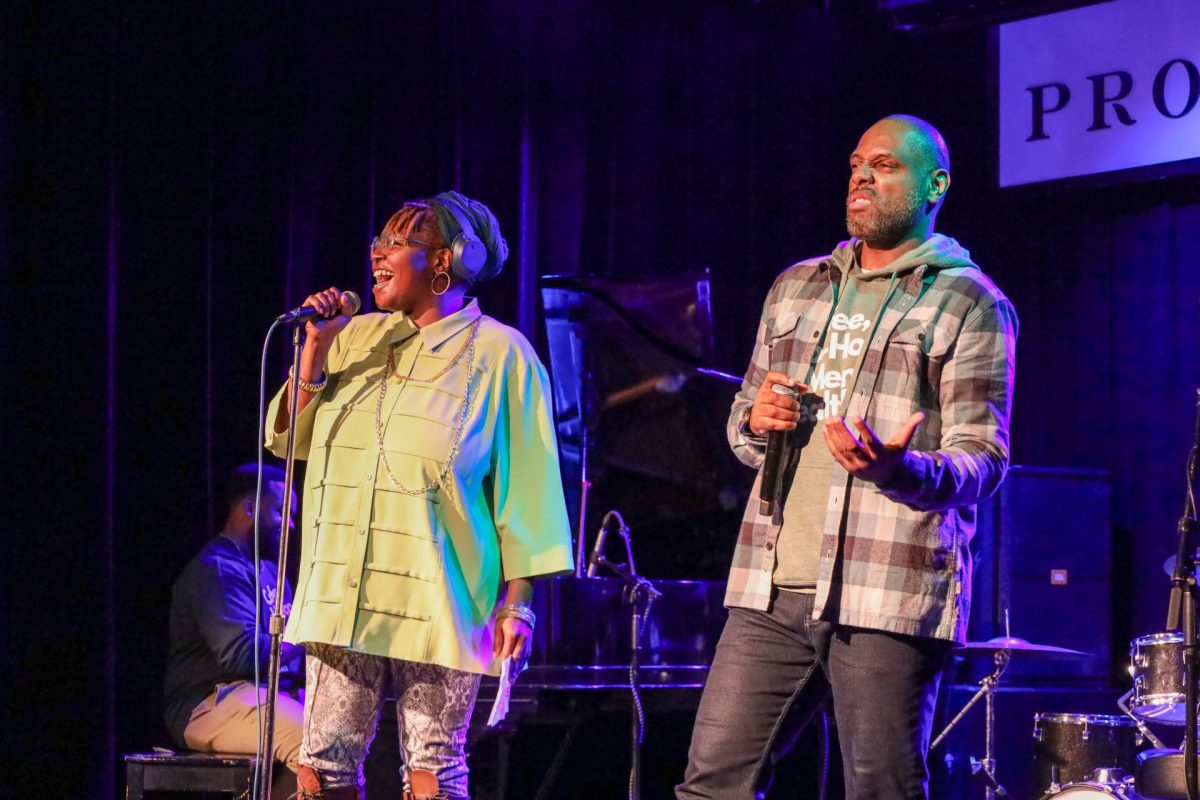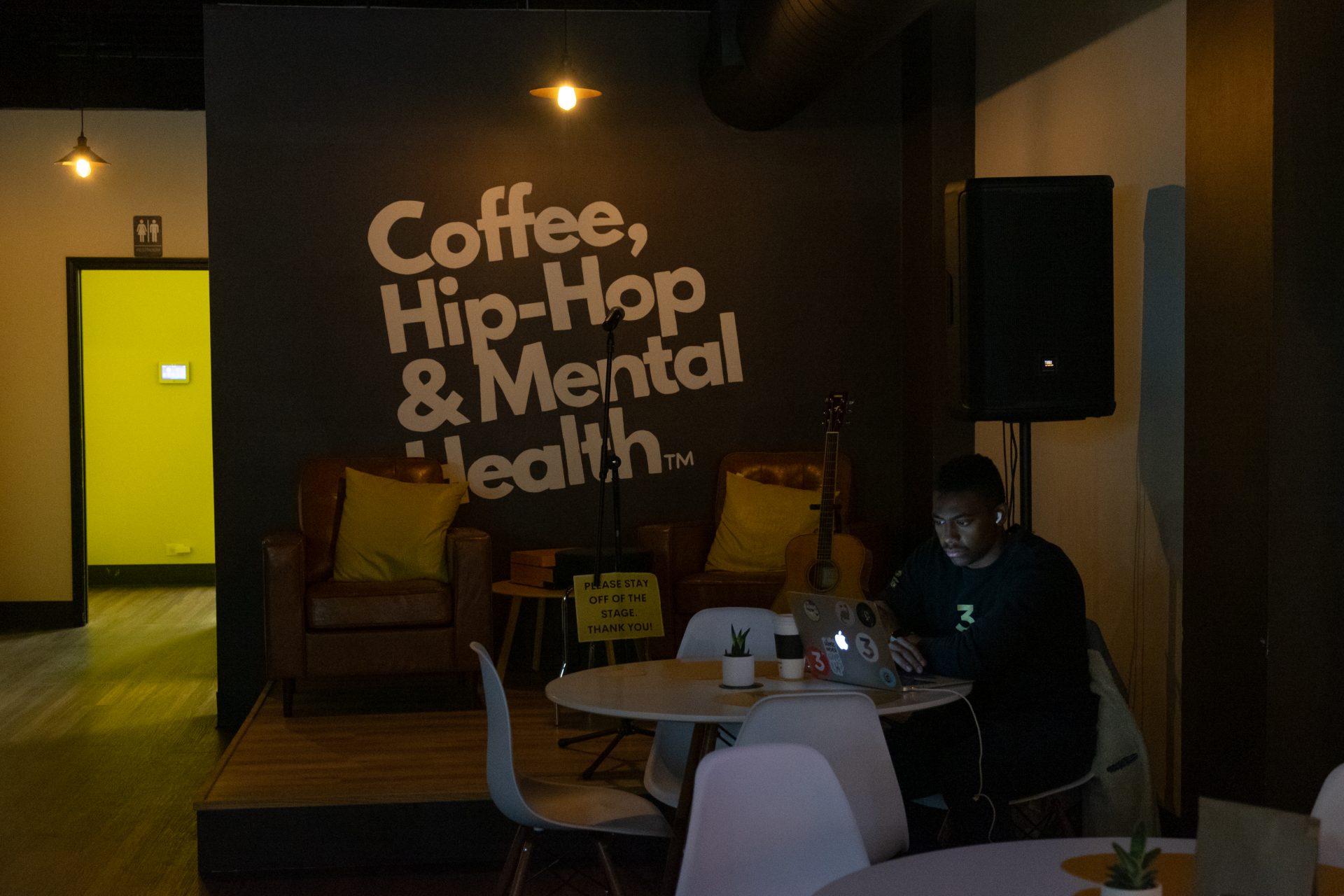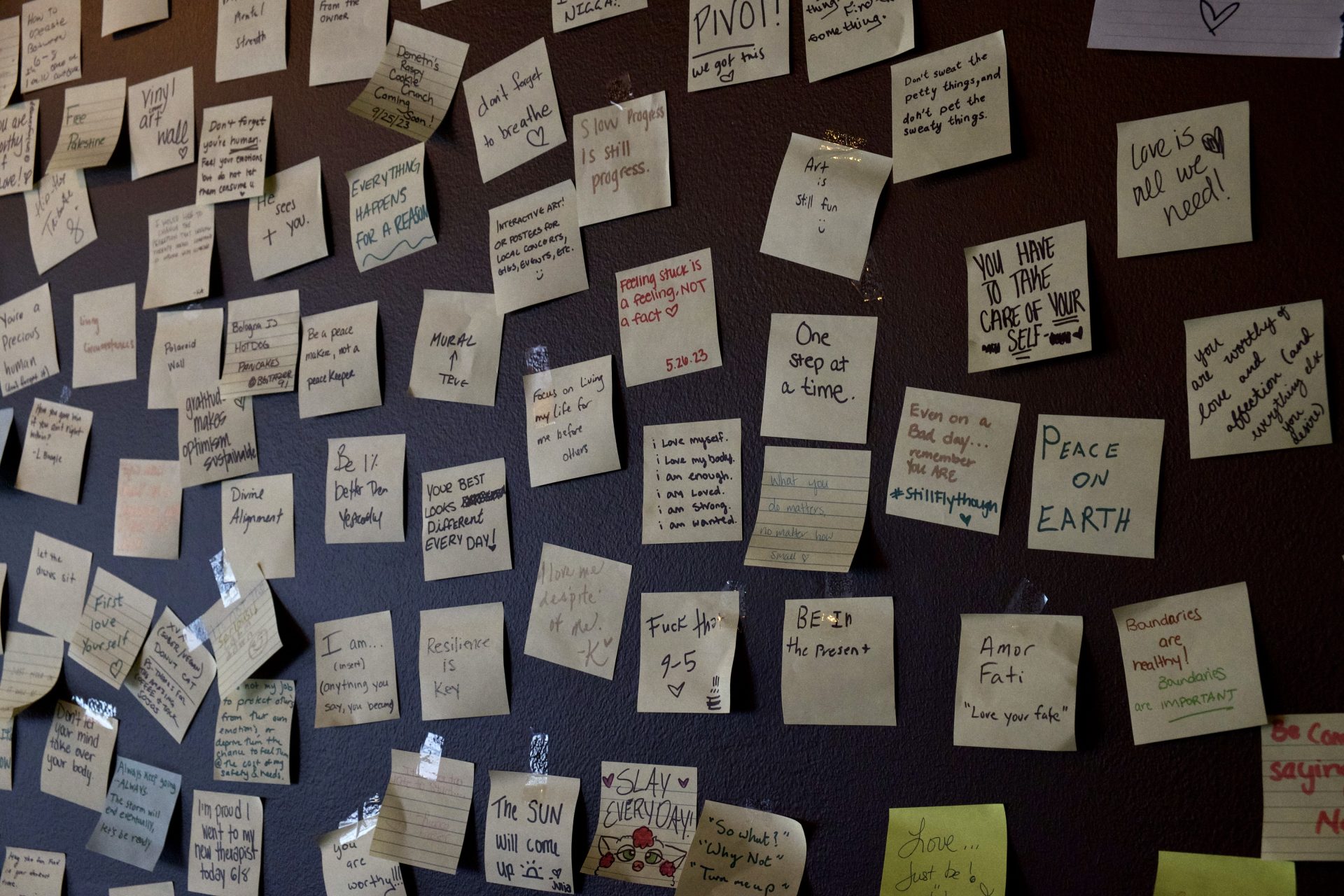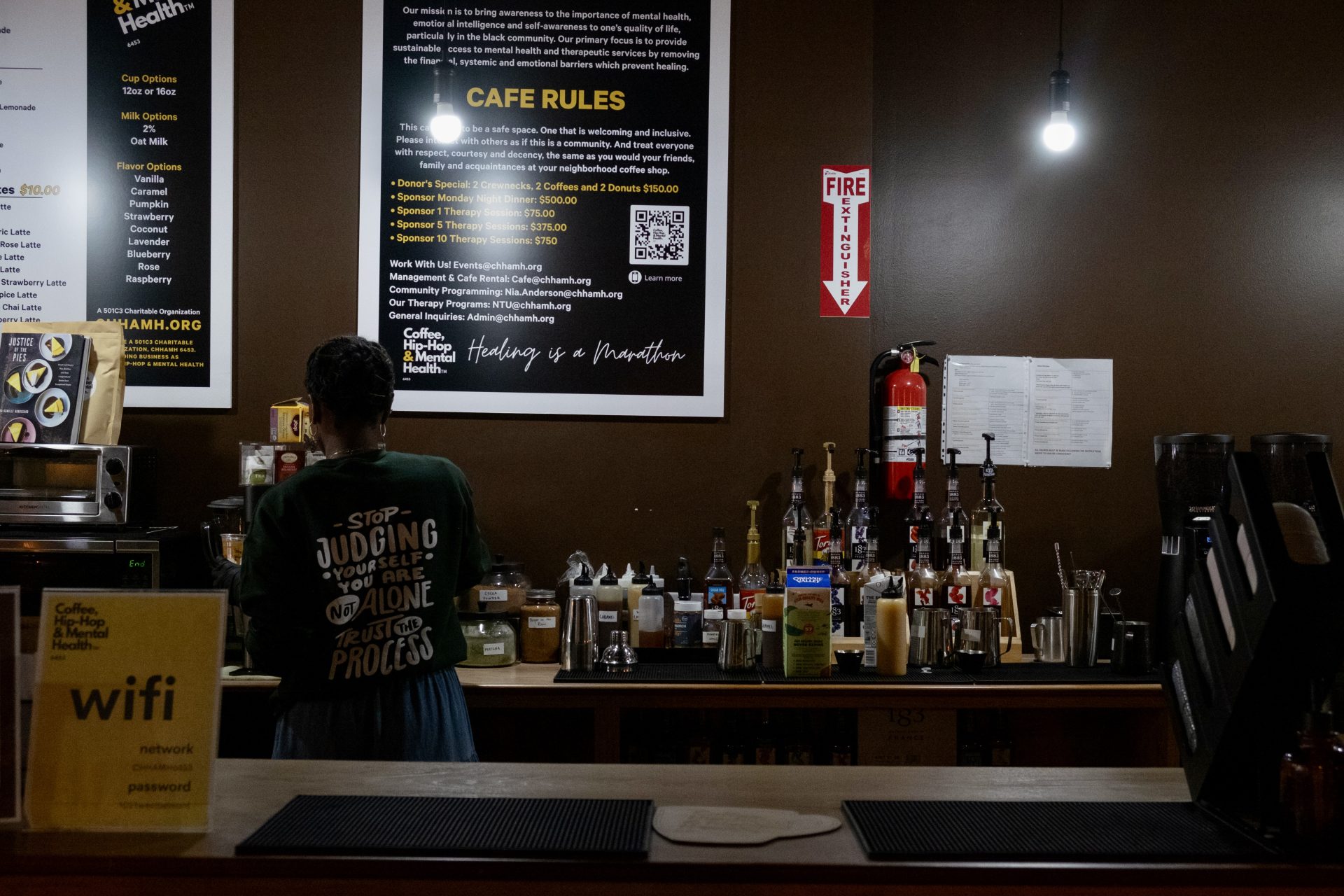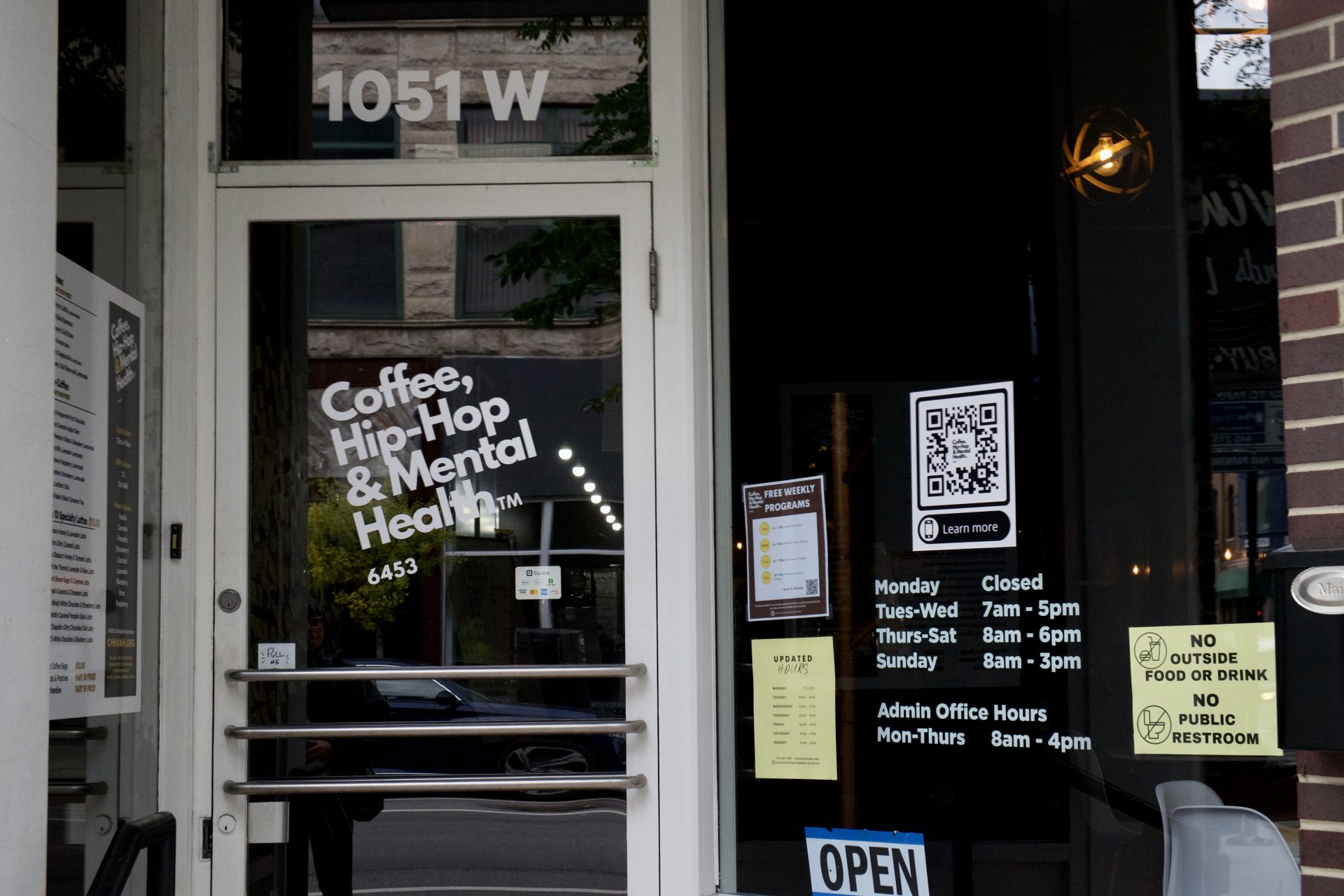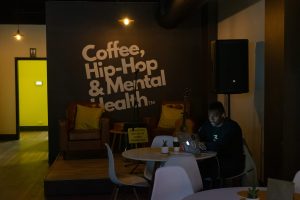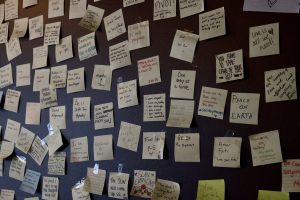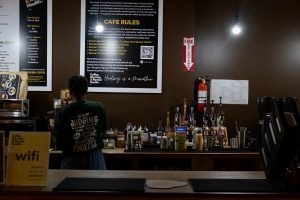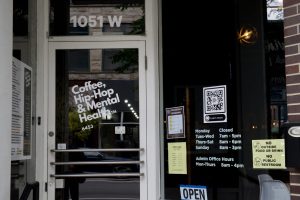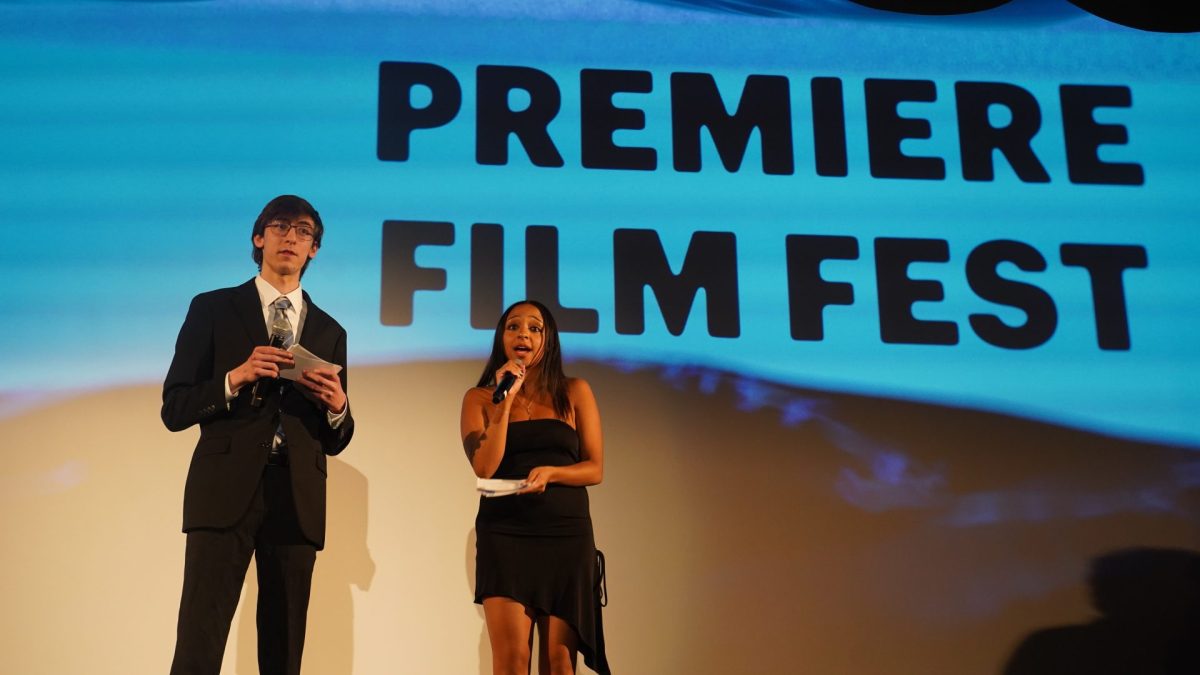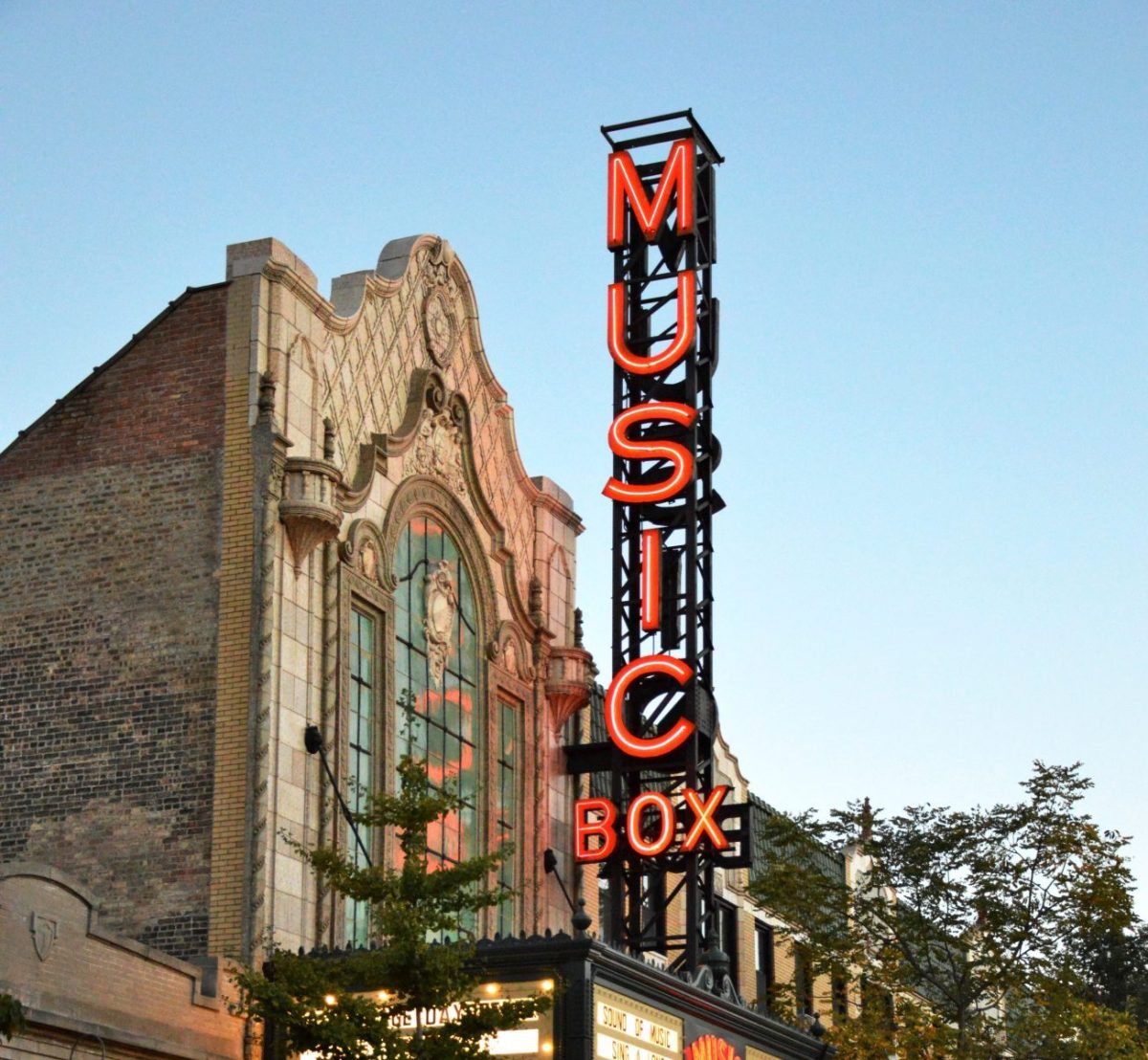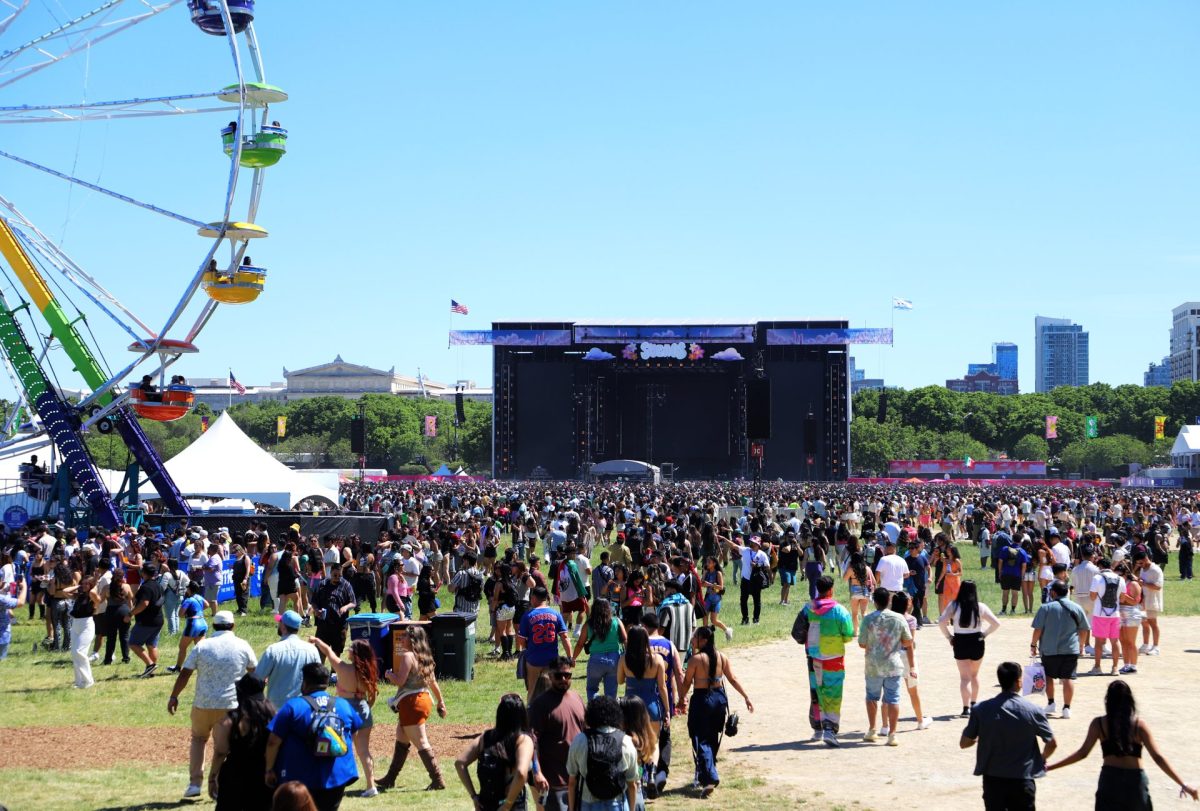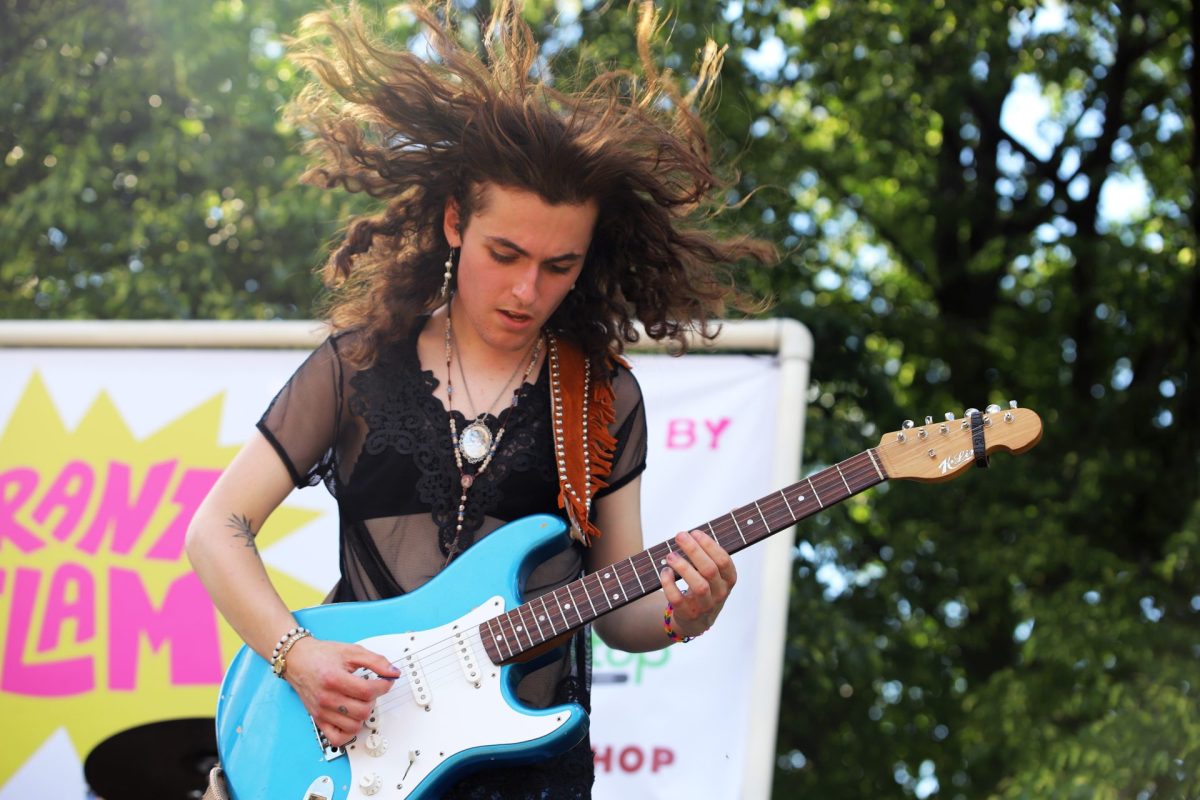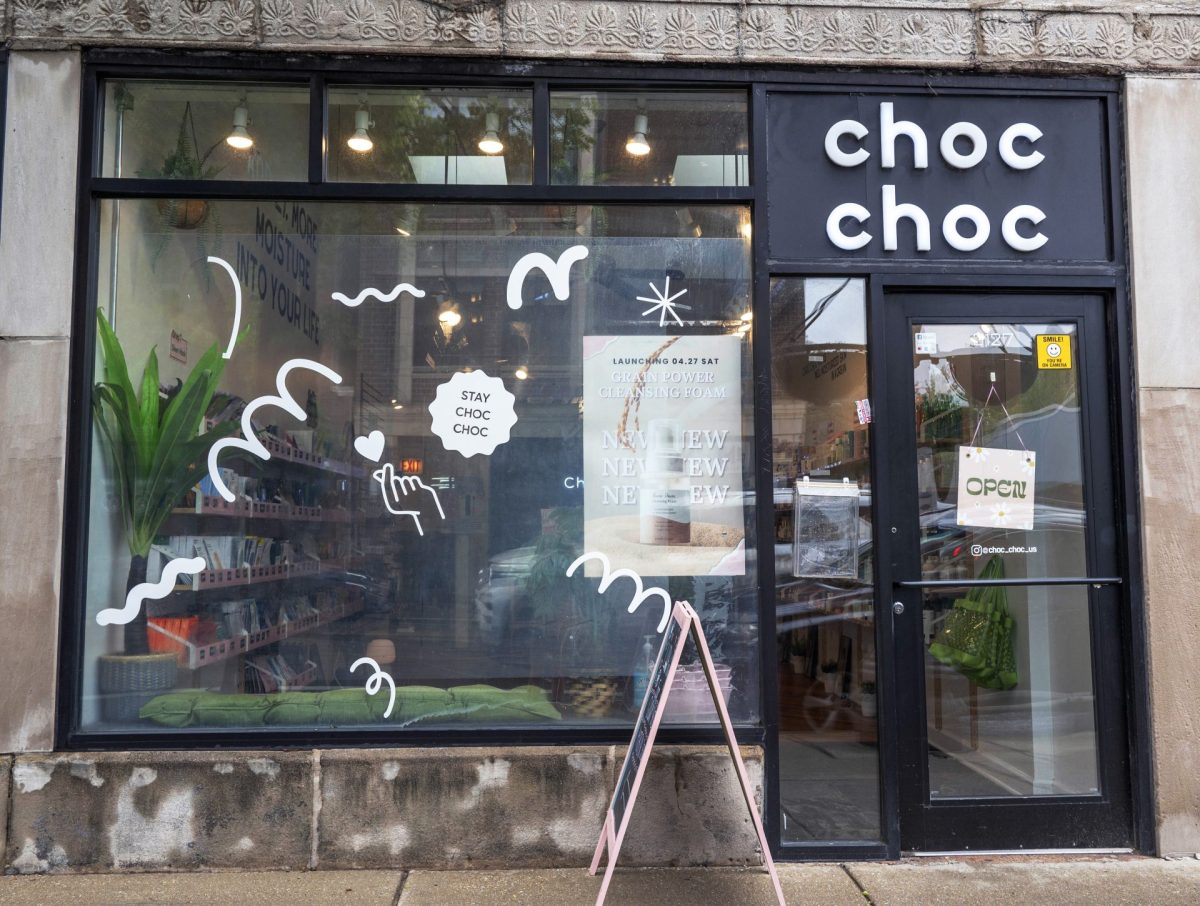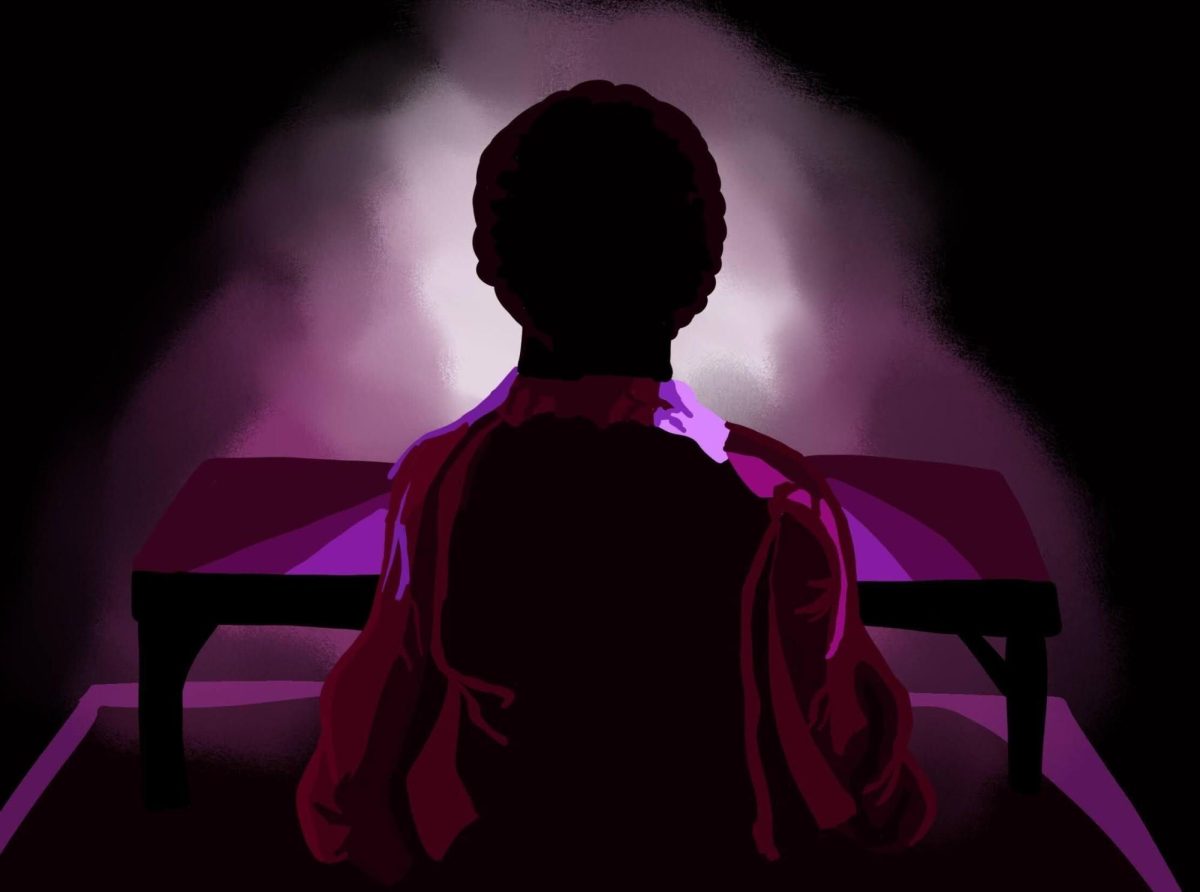Christopher LeMark stood on stage in front of a full crowd at The Promontory the night of Oct. 11 and led the room through a simple call and response: “The city … of Chicago … will heal.”
LeMark is the founder of Coffee, Hip-Hop & Mental Health, an organization located in Lakeview that is working to make talk therapy more accessible, particularly for Black communities. He began going to therapy himself in 2018 following what he describes as a “mental and emotional breakdown” at a coffee shop.
LeMark went to the coffee shop on his break from work because he couldn’t afford lunch.
“Because of the way I grew up, it sent me down a path of living in poverty and survival by any means, so [I was] working a dead-end sales job,” he said.
LeMark said that he felt like a failure as a hip-hop artist, a career he has pursued since 1998, and that he felt disappointed about his life.
Through therapy, LeMark said he is working through his traumas, like childhood abuse, abandonment and sporadic homelessness. His personal growth motivated him to help others get the same opportunity to heal. So he decided to use his experiences as a musician to spark conversations about his newfound passion: mental health.
“I know what it’s like getting up every day [wondering], ‘how am I going to get through the day?’” LeMark said. “So we approach [therapy] from an empowerment standpoint.”
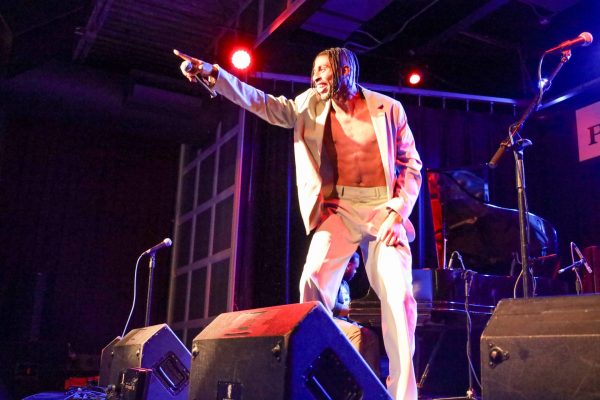
The organization’s free therapy program currently provides 250 individuals a year with five months of free therapy. They fund the program with events like the recent concert at The Promontory and through sales of drinks and merchandise at the Coffee, Hip-Hop & Mental Health cafe.
However, LeMark said there is more to making therapy accessible than overcoming the costs.
“The barriers are not just financial,” LeMark said. “There’s shame, there’s embarrassment. … It’s our own self-bias.”
These barriers are very real systemic issues for Black people seeking mental health treatment. According to the Substance Abuse and Mental Health Services Administration, 39% of Black people in the U.S. received mental health services in 2021 compared to 52% of non-Hispanic white people.
Aurin Woods, an artist who performed at the recent fundraiser, said that these events are particularly impactful for the Black community.
“Black people need more spaces especially curated for mental health conversations and vulnerability,” Woods said. “It matters so much, not just on a personal level, but on a cultural level.”
The Coffee, Hip-Hop & Mental Health cafe is designed as a space to have these conversations and provide other services that a traditional coffee shop does not.
Every Friday, the cafe also serves free coffee to anyone who cannot afford it, breaking down the financial barrier that keeps some individuals from receiving service at an average coffee shop.
“We want to be able to give people a space to be seen, to be heard and not to make them feel like [they’re] not going to walk in there because [they] can’t afford it,” LeMark said.
When they are not making drinks, the cafe serves as a space for individuals to embark on their own mental health journey through weekly men’s and women’s group therapy sessions. LeMark said these sessions help individuals become more comfortable exploring their mental health in ways one-on-one therapy cannot.
“Black people need more spaces especially curated for mental health conversations and vulnerability.”
— Aurin Woods, a Chicago based singer-songwriter
“When you’re in a room with a group of people who are on a healing journey, to know that you’re not the only one is therapeutic in itself,” LeMark said.
LeMark and a therapist lead these therapy sessions each week, and sometimes, they invite another moderator to speak with the group. According to LeMark , music is another medium that helps inspire discussion.
“Music is the bridge,” LeMark said. “That’s how we connect the community to the psychology space.”
To make this connection, group leaders often play an album during the session and break down its content to spark conversation. Going forward, LeMark plans to explore new ways to connect music and mental health.
“The next phase of the organization is to use music for healing,” LeMark said.
This phase began this month at the organization’s first concert at The Promontory, which served as both a fundraiser and an opportunity to talk about mental health within the community.
Nick Henderson, another one of the concert’s performers, also attends the organization’s group therapy sessions.
“Events like this [are] really giving language to folks,” Henderson said. “People are going to leave from this event, and they are going to have something to ponder about … prioritizing their mental health.”
The organization will continue to host concerts at The Promontory going forward. LeMark said the organization is also planning on producing a Coffee, Hip-Hop & Mental Health music album.
He said an album and resulting tour could add a new revenue stream to expand the free therapy program to other states.
Expansion has already begun in Chicago. Starting Nov. 5, the organization will begin hosting weekly group therapy sessions on the South Side of Chicago in Hyde Park. LeMark, who grew up on the South Side, hopes to put a cafe there, as well, when there are enough funds to do so.
“Putting group therapy back on the South Side where it all began, it just makes sense,” LeMark said. “But it’s also time to start building.”
LeMark hopes that the organization’s multifaceted approach to normalizing mental health makes a lasting impact in the community.
“We don’t know everything, but we do know people are struggling and we are doing our part,” LeMark said.
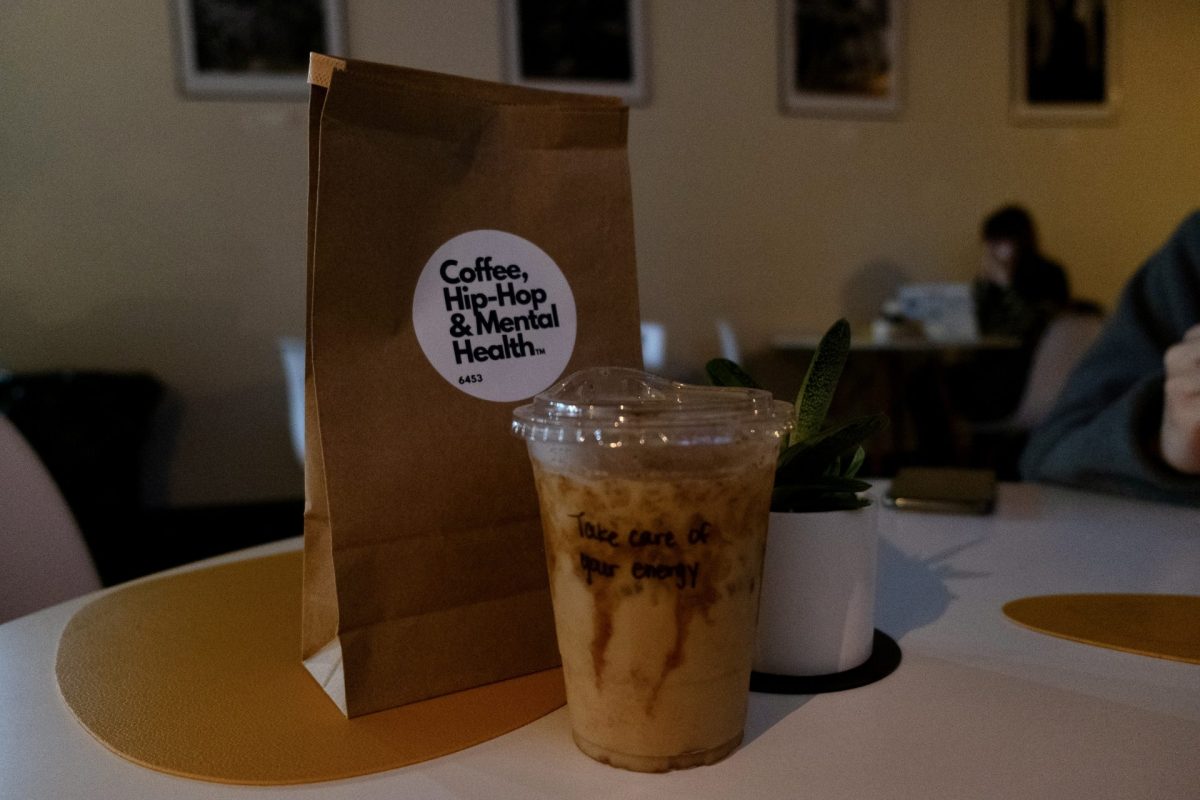
Editor’s note: This version corrects story and captions to indicate that LeMark hopes to open a second location on the South Side and that the money from the October fundraiser concert goes directly to fund Coffee, Hip-Hop & Mental Health’s free therapy program. This version also fixes photo bylines to Eli Smith.


